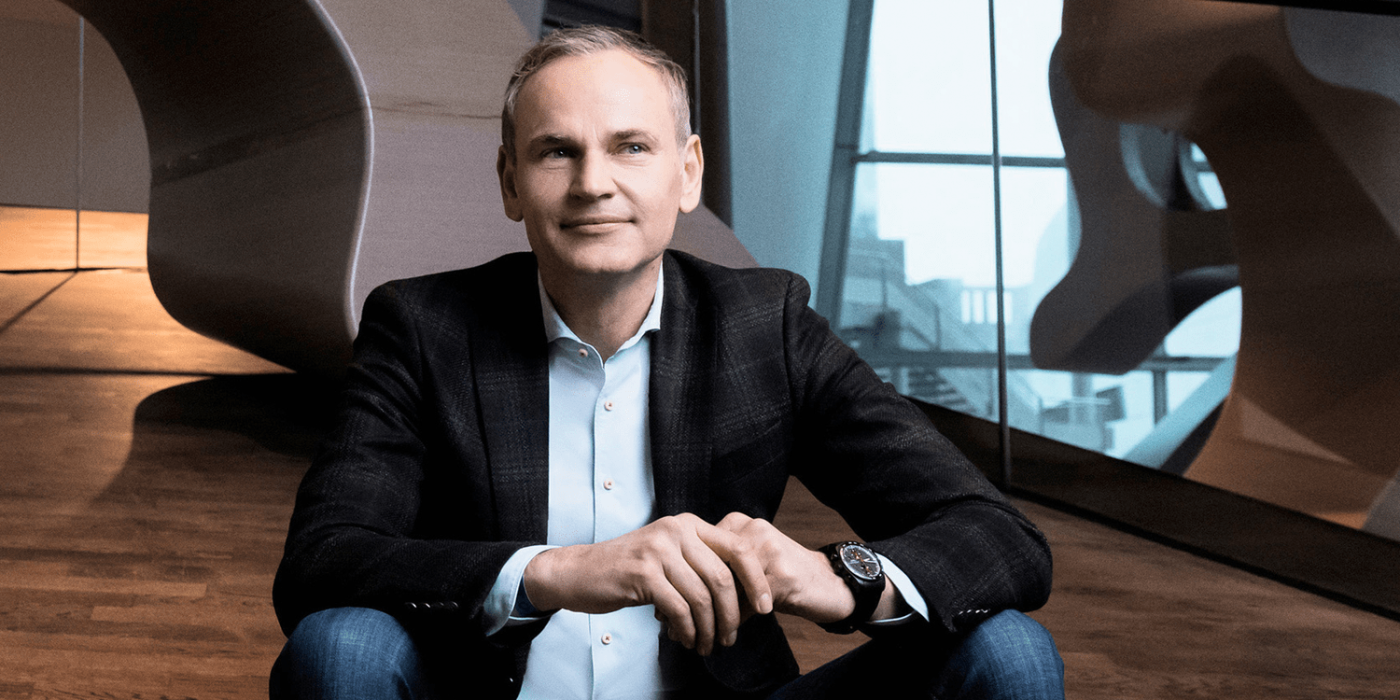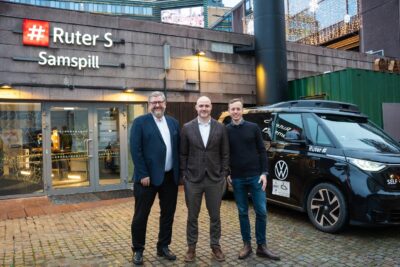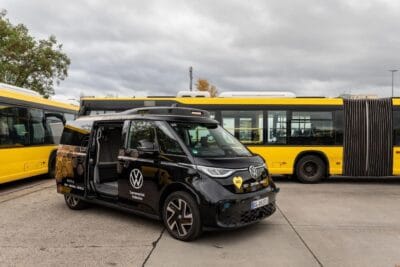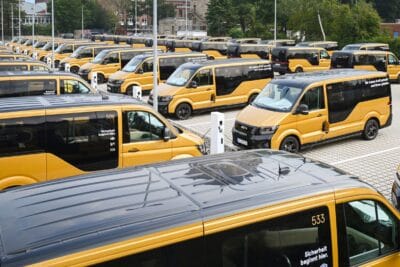VW could sell parts of its robotaxi unit
The German Manager Magazin reported on the “major capital increase” including the sale of a minority stake in ADMT. According to the report, VW has already begun searching for a strategic partner from within the sector or a financial investor. The business model – VW supplies vehicles such as the ID. Buzz AD, fleet management, sensors, and the software for autonomous taxis – is described as “a story made for investors”. ADMT boss Christian Senger, who previously headed software subsidiary Cariad, says the robotaxi rollout in global cities could generate billions in revenue for the Group.
Several parties involved in the capital increase have reportedly confirmed to the business magazine that VW CEO Oliver Blume’s directive is to “retain control over ADMT and thus Moia. But bringing in a strategic partner and potentially financial investors would be beneficial.”
However, the considerations extend beyond ADMT and the Moia brand, even though the robotaxi project is seen as the most future-proof venture currently seeking partners. Manager Magazin writes literally that Europe’s largest carmaker has “begun the great sell-off”. VW is also seeking buyers or co-owners for other business units, such as the Porsche subsidiary MHP (an IT consulting company) or engineering services provider IAV.
Talks are also reportedly underway regarding lesser-known holdings such as large engine supplier Everllence and VW’s investment (via Porsche) in US software company Applied Intuition. Internally, negotiations over Everllence’s sale terms are said to be so contentious that interested parties and investment bankers are already losing patience. Other holdings, such as the bicycle technology portfolio (Porsche is among others invested in e-bike drive manufacturer Fazua), are so minor that they are considered “loss-making fringe businesses” within the VW Group.
No investors for PowerCo for now
The VW management has deliberately excluded two areas from its considerations around capital increases with external investors or strategic partners: the car brands and the Group’s battery business. There have been repeated rumours that VW might bring third parties on board at battery cell subsidiary PowerCo, based in Salzgitter, to share high investment costs. However, for now at least, that is not the case. VW’s leadership team apparently wants to wait until production runs reliably. At that point, they could prove to potential partners that they have mastered the technology and that PowerCo is an attractive investment – rather than a bet on battery production that fails to deliver, as seen with Northvolt.
Partial sales of car brands also appear off the table for now, with Manager Magazin specifically naming Audi and Cupra. Rivals such as Stellantis have already floated high-profile, high-margin brands like Ferrari on the stock market to monetise parts of the business. Within VW, Audi subsidiary Lamborghini could also be a candidate, but that does not appear to be under consideration at present.
The Group leadership intends to use the proceeds from the partial sales now being prepared to cover some of its strategic investments, as billions will need to flow into developing autonomous driving, battery technology, and vehicles – both electric and combustion. While these future investments cannot be postponed, sales and profits from once-reliable brands such as Audi and Porsche, which regularly generated multi-billion-dollar surpluses, are eroding.
Blume himself confirmed these considerations months ago. In April, he told Manager Magazin in an interview that the Group would review its holdings under the guiding question, “What do we still want to own ourselves in future?” This process now appears to be becoming concrete, with a dedicated team of former investment bankers and consultants.
The latest report also suggests that the early departure of VW HR Director Gunnar Kilian in July is linked to the planned (partial) sales. As chairman of Everllence’s supervisory board, Kilian worked on its restructuring for four years and, given a nine per cent return in 2023, had insisted on keeping the engine builder within the Group. He was ultimately overruled: Everllence is now under discussion, and Kilian had to go. The official Group statement on his departure cited “different views on the management of holding companies” as the reason for the split.
manager-magazin.de (in German; paywall)





0 Comments